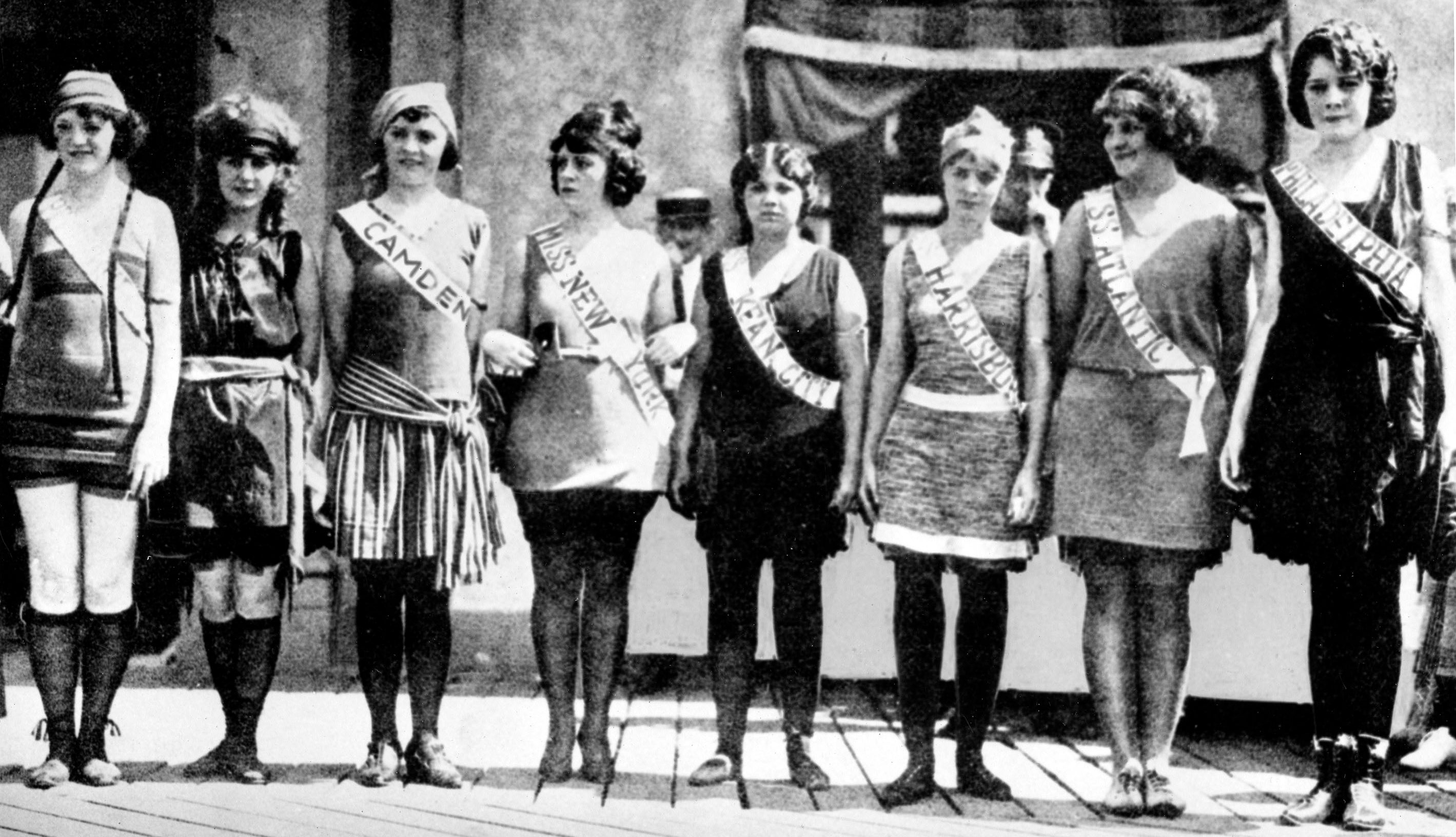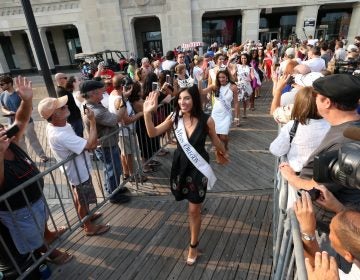Waving off critics, Miss America prepares for contest without swimsuit competition
Miss America's new leader has been pilloried for ending the iconic swimsuit segment of the contest
Listen 5:26
Miss North Dakota Cara Mund is congratulated by contestants after being named Miss America during Miss America 2018 pageant, Sunday, Sept. 10, 2017, in Atlantic City, N.J. (AP Photo/Noah K. Murray)
For the first time in Miss America’s nearly century-long history, Sunday’s winner will not have to strut across an Atlantic City stage in a bathing suit and high heels.
The swimsuit segment has been cut from the Miss America program, one of several changes made in the last year to update the pageant — which is now called a competition — for the modern era.
“We will no longer judge our candidates on their outward physical appearance,” said Gretchen Carlson, the new head of Miss America, in an interview on ABC’s Good Morning America in June. “That’s huge.”
Carlson has been leading the effort to modernize Miss America since she took over earlier this year following an email scandal that resulted in the resignation of several top officials.

Former Miss America CEO Sam Haskell and several board members were caught disparaging contestants using vulgar and sexual language.
Carlson also became one of the early voices in the #MeToo movement, when the former news host sued her then-boss at Fox News, Roger Ailes, claiming sexual harassment. She later settled the lawsuit for $20 million.
“We’ve heard from a lot of young women who say we’d love to be a part of your program, but we don’t want to be out there in high heels and a swimsuit. So guess what? You don’t have to do that anymore,” said Carlson, who was Miss America 1989, on ABC. (Miss America and Carlson declined our request for an interview.)
Some hailed the changes as long overdue.
But almost immediately there was a backlash over removing the iconic swimsuit section.
Critics accused Miss America of bowing to the forces of political correctness. Representatives from 22 state pageants, including New Jersey, signed a letter calling on Carlson and other top officials to resign.
Last week, as the preliminary rounds of the competition were getting underway, signs appeared in Atlantic City calling Carlson “so fake.”
Someone draped a sash around a Miss America statue on the city’s Boardwalk that read: “Gretchen sucks.”
Crystal Lee, a former Miss California and the first runner-up in Miss America 2014, said there was widespread support for the swimsuit competition among the contestants. “If you ask any contestant in the Miss America pageant,” Lee said, “they want to wear that swimsuit.”
Lee said she understood why getting rid of the swimsuit segment might make it easier for the organization to recruit new applicants.
But she added that she did not think of the Miss America of old as an attack on feminism. “I felt if anything that being in that swimsuit was a choice, being in that swimsuit made me feel like I get to do something that women in past generations did not have the privilege to do,” Lee said.

The first Miss America pageant took place in 1921 as a “bather’s revue.” It was a commercial ploy by a few Atlantic City businessmen to keep tourists in town past Labor Day.
Margot Mifflin, an English professor at the City University of New York who is writing a cultural history of Miss America, said many of the early Miss America contestants considered wearing a bathing suit in public as a form of liberation.
“In the decade preceding that, women had to fully cover up. They were wearing, at the turn of the century, basically wool dresses into the water, like, street clothes into the water,” Mifflin said. “There were even these devices called bathing machines, where they would get in these little mobile units and somebody would push them out into the water and then they’d jump in so as not to be seen.”
But over time, as women fought for greater equality in public and private life, some people soured on the swimsuit competition.

In 1968 a group of protesters picketed outside Miss America in Atlantic City, saying it was sexist to objectify the contestants. One protester’s sign likened the pageant to a cattle auction.
What had once been a liberating act for women was now considered an affront to feminism and equality.
Nevertheless, the swimsuit competition stuck around. Until this year.
What that means for Miss America’s audience is still unknown. Mifflin said axing perhaps the most memorable part of the competition could have viewers waving goodbye.
“This year is going to determine, at the very least, do people want to watch a Miss America where they don’t see women in swimsuits?” she said. “And if they do, what will they be watching for?”
WHYY is your source for fact-based, in-depth journalism and information. As a nonprofit organization, we rely on financial support from readers like you. Please give today.




